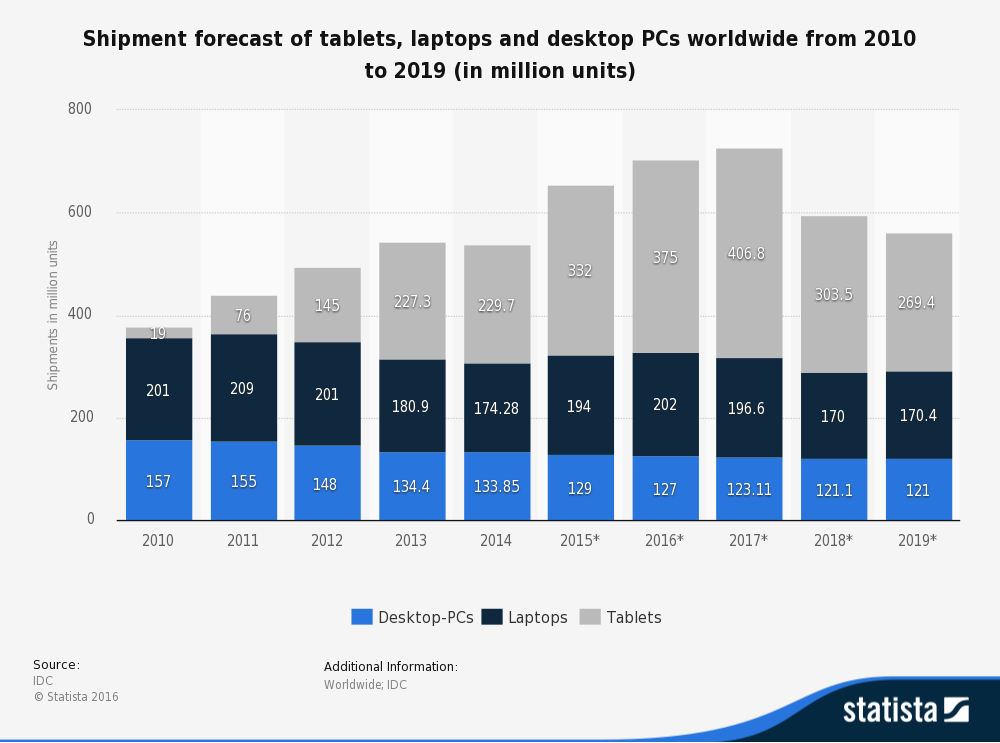4 charts that explain the decline of the PC

Image: REUTERS/Nir Elias

Get involved with our crowdsourced digital platform to deliver impact at scale
Stay up to date:
Fourth Industrial Revolution
Intel has announced it will lay off one in 10 of its workers as a direct result of the declining PC market. This amounts to 12,000 employees by mid-2017 as the company shifts away from the declining PC market towards the cloud and connected devices.
“It’s about driving long-term change to further establish Intel as the leader for the smart, connected world,” explained Intel CEO Brian Krzanich in an email to staff.
So what has happened to the PC market?
The rise and fall of the PC
As this chart from Statista outlines, the market has been shrinking since early 2012. Although 60 million PCs were sold in the first quarter of this year, that’s a decline of nearly 10% compared to the same quarter last year.

Gartner, the market researcher behind the data, explained there are several potential factors behind the decline.
“PCs are not being adopted in new households as they were in the past, especially in emerging markets. In these markets, smartphones are the priority.”
The rise of the smartphone

Smartphone sales have exploded around the world since 2006. From lowly beginnings, this chart from Business Insider highlights the rise to shipments exceeding 1.5 billion last year.
Emerging-market sales have represented the majority of global sales since 2012.

Tablets have also played a significant role in the move away from PCs.
The tale of the tablet

This chart gives an insight into the decline in PC sales relative to the rise in tablets. The market for tablets in 2010 was just 5% of units shipped. However, by 2014 tablets accounted for over 40% of the total market.
Have you read?
Don't miss any update on this topic
Create a free account and access your personalized content collection with our latest publications and analyses.
License and Republishing
World Economic Forum articles may be republished in accordance with the Creative Commons Attribution-NonCommercial-NoDerivatives 4.0 International Public License, and in accordance with our Terms of Use.
The views expressed in this article are those of the author alone and not the World Economic Forum.
The Agenda Weekly
A weekly update of the most important issues driving the global agenda
You can unsubscribe at any time using the link in our emails. For more details, review our privacy policy.
More on Fourth Industrial RevolutionSee all
Thomas Beckley and Ross Genovese
April 25, 2024
Agustina Callegari and Daniel Dobrygowski
April 24, 2024
Christian Klein
April 24, 2024
Sebastian Buckup
April 19, 2024
Claude Dyer and Vidhi Bhatia
April 18, 2024







